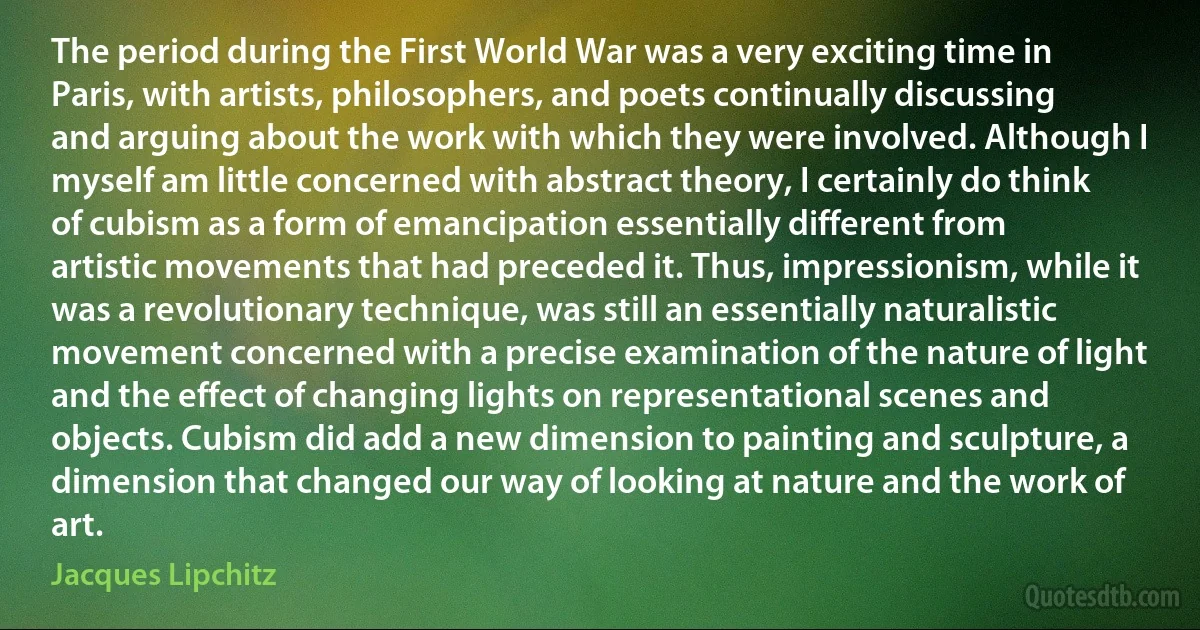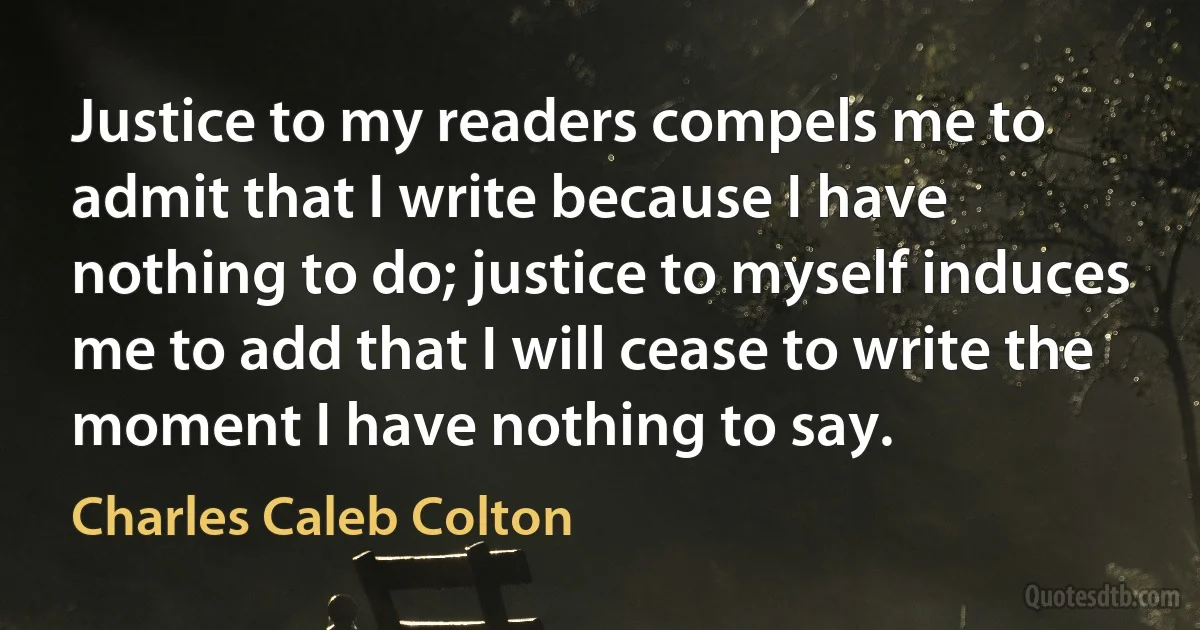Add Quotes - page 17
Totalitarian art must be a form of classicism: the state which is founded on order and subordination demands an art with a similar basis. Romantic painting, however popular, expresses the revolt of the individual. The State also requires an art of reason by which appropriate works may be produced as required. Inspiration is outside state control. The classic attitude toward subject matter - that it should be clear and unequivocal - supports the attitude of unquestioning belief. Add the fact that totalitarian art must be real enough to please the ignorant, ideal enough to commemorate a national hero, and well enough designed to present a memorable image, and one sees how perfectly The Death of Marat fills the bill. That it happens also to be a great work of art makes it dangerously misleading.

Kenneth Clark
Fain would I describe the glories of those months in the ice-world - the beautiful and terrible network of crevasses, the clustering pinnacles, the thousand streams ringing and gurgling in azure channels cut in the living body of the glacier, the glorious radiance of the sunbeams falling on crystal dale and hill, the rosy glow of the dawn and sunset, the march of the clouds on the mountains, and the mysterious splendor of the auroras when the nights grow long, etc., etc., etc. But this would require a volume, while here I have only space to add - Go to Alaska, go and see.

John Muir
Our crude civilization engenders a multitude of wants, and lawgivers are ever at their wits' end devising. The hall and the theater and the church have been invented, and compulsory education. Why not add compulsory recreation? Our forefathers forged chains of duty and habit, which bind us notwithstanding our boasted freedom, and we ourselves in desperation add link to link, groaning and making medicinal laws for relief. Yet few think of pure rest or of the healing power of Nature.

John Muir
But in our Sanazarro 'tis not so,
He being pure and tried gold; and any stamp
Of grace, to make him current to the world,
The duke is pleased to give him, will add honour
To the great bestower; for he, though allow'd
Companion to his master, still preserves
His majesty in full lustre.

Philip Massinger
Spinoza says that if a stone which has been projected through the air, had consciousness, it would believe that it was moving of its own free will. I add this only, that the stone would be right. The impulse given it is for the stone what the motive is for me, and what in the case of the stone appears as cohesion, gravitation, rigidity, is in its inner nature the same as that which I recognise in myself as will, and what the stone also, if knowledge were given to it, would recognise as will.

Arthur Schopenhauer
There is the name and the thing: the name is a voice which denotes and signifies the thing; the name is no part of the thing, nor of the substance; 'tis a foreign piece joined to the thing, and outside it. God, who is all fulness in Himself and the height of all perfection, cannot augment or add anything to Himself within; but His name may be augmented and increased by the blessing and praise we attribute to His exterior works: which praise, seeing we cannot incorporate it in Him, forasmuch as He can have no accession of good, we attribute to His name, which is the part out of Him that is nearest to us. Thus is it that to God alone glory and honour appertain; and there is nothing so remote from reason as that we should go in quest of it for ourselves; for, being indigent and necessitous within, our essence being imperfect, and having continual need of amelioration, 'tis to that we ought to employ all our endeavour.

Michel de Montaigne
The phaenomena afforded by trades, are a part of the history of nature, and therefore may both challenge the naturalist's curiosity and add to his knowledge, Nor will it suffice to justify learned men in the neglect and contempt of this part of natural history, that the men, from whom it must be learned, are illiterate mechanicks... is indeed childish, and too unworthy of a philosopher, to be worthy of an honest answer.

Robert Boyle
Mr. Douglas incessantly remembers to inform us in every speech he has made for a year past that, when the Constitution was formed, all the thirteen States but one recognized slavery by law; but he incessantly forgets to add that Pennsylvania in 1780 passed an act for the gradual abolition of slavery which freed everybody born in the State after its passage; that one day later Massachusetts decided that her Bill of Rights abolished slavery forever; that in 1784 Connecticut followed Pennsylvania, and Rhode Island at about the same time; that in 1792, soon after the Constitution was formed. New Hampshire, under her Bill of Rights, Vermont, by express assertion in her Constitution, New York in March, 1799, and New Jersey in 1804, gradually abolished slavery.

George William Curtis
The true country of a Christian, but above all of a Religious, is Heaven, towards which we are tending; it is for God that we have made this sacrifice, and, I may add, He has already repaid us, for His protecting hand has assisted us in a visible manner, and we cannot but recognize the attentions of His Providence.

Théodore Guérin



